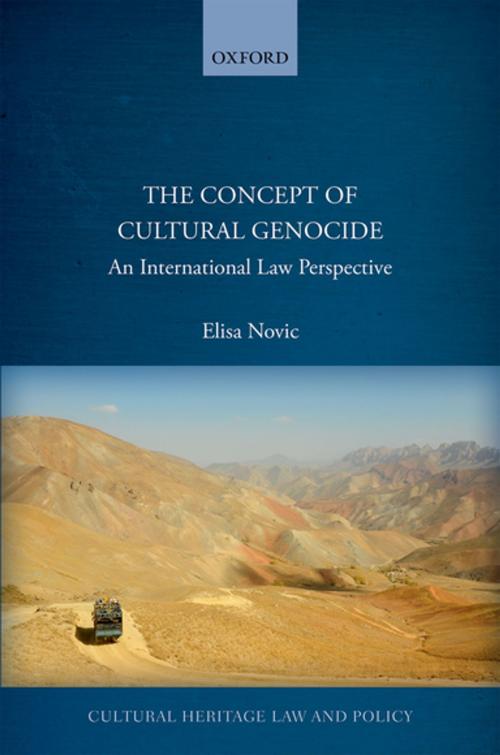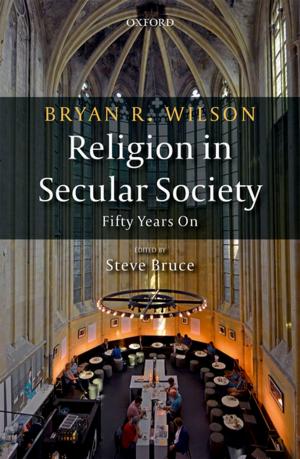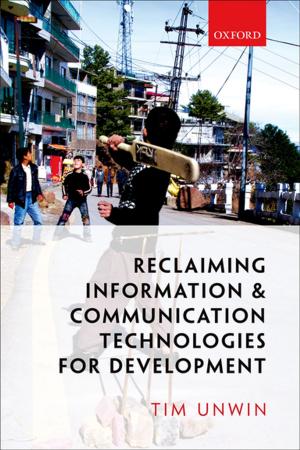The Concept of Cultural Genocide
An International Law Perspective
Nonfiction, Reference & Language, Law, International, History| Author: | Elisa Novic | ISBN: | 9780191090929 |
| Publisher: | OUP Oxford | Publication: | October 20, 2016 |
| Imprint: | OUP Oxford | Language: | English |
| Author: | Elisa Novic |
| ISBN: | 9780191090929 |
| Publisher: | OUP Oxford |
| Publication: | October 20, 2016 |
| Imprint: | OUP Oxford |
| Language: | English |
Cultural genocide is the systematic destruction of traditions, values, language, and other elements that make one group of people distinct from another.Cultural genocide remains a recurrent topic, appearing not only in the form of wide-ranging claims about the commission of cultural genocide in diverse contexts but also in the legal sphere, as exemplified by the discussions before the International Criminal Tribunal for the Former Yugoslavia and also the drafting of the UN Declaration on the Rights of Indigenous Peoples. These discussions have, however, displayed the lack of a uniform understanding of the concept of cultural genocide and thus of the role that international law is expected to fulfil in this regard. The Concept of Cultural Genocide: An International Law Perspective details how international law has approached the core idea underlying the concept of cultural genocide and how this framework can be strengthened and fostered. It traces developments from the early conceptualisation of cultural genocide to the contemporary question of its reparation. Through this journey, the book discusses the evolution of various branches of international law in relation to both cultural protection and cultural destruction in light of a number of legal cases in which either the concept of cultural genocide or the idea of cultural destruction has been discussed. Such cases include the destruction of cultural and religious heritage in Bosnia and Herzegovina, the forced removals of Aboriginal children in Australia and Canada, and the case law of the Inter-American Court of Human Rights in relation to Indigenous and tribal groups' cultural destruction.
Cultural genocide is the systematic destruction of traditions, values, language, and other elements that make one group of people distinct from another.Cultural genocide remains a recurrent topic, appearing not only in the form of wide-ranging claims about the commission of cultural genocide in diverse contexts but also in the legal sphere, as exemplified by the discussions before the International Criminal Tribunal for the Former Yugoslavia and also the drafting of the UN Declaration on the Rights of Indigenous Peoples. These discussions have, however, displayed the lack of a uniform understanding of the concept of cultural genocide and thus of the role that international law is expected to fulfil in this regard. The Concept of Cultural Genocide: An International Law Perspective details how international law has approached the core idea underlying the concept of cultural genocide and how this framework can be strengthened and fostered. It traces developments from the early conceptualisation of cultural genocide to the contemporary question of its reparation. Through this journey, the book discusses the evolution of various branches of international law in relation to both cultural protection and cultural destruction in light of a number of legal cases in which either the concept of cultural genocide or the idea of cultural destruction has been discussed. Such cases include the destruction of cultural and religious heritage in Bosnia and Herzegovina, the forced removals of Aboriginal children in Australia and Canada, and the case law of the Inter-American Court of Human Rights in relation to Indigenous and tribal groups' cultural destruction.















